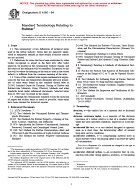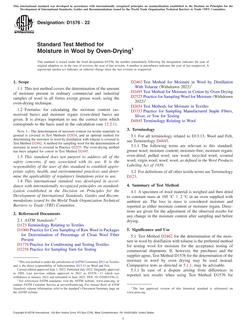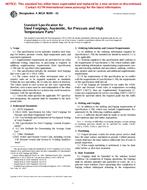1.1 This practice describes a method for ultrasonic mapping of the soundness of a bond joining a sputtering target to its supporting backing plate. The results of the examination may be used in predicting the target-backing plate assembly’s suitability for use. Accept/reject standards are not specified; these are subject to agreement between target supplier and user, depending upon the application requirements.
1.2 This standard is intended to be used with Practice E1001.
1.3 The method reveals unbonded areas 0.125 in. (3 mm) in diameter and larger. The technique permits, for example, unambiguous quantitative measurement of the voided area in solder bonds.
1.3.1 This technique may also show regions in which bond integrity is marginally degraded by imperfect adhesion, for example, areas in which oxide inclusion has inhibited the development of full bond strength. Evaluation of indications of degraded bond areas may vary in rigor from purely subjective to semiquantitative. Target supplier and user must agree upon the means used to display and grade partially bonded areas.
1.4 This practice is applicable to assemblies having planar bonds in which the design provides at least one flat plane parallel to the bond that may be used as the entry/exit surface for ultrasonic excitation.
1.5 Only the immersion pulse-echo method is covered.
1.6 Evaluation by this method is intended to be nondestructive. For target assemblies that would be degraded by immersion in demineralized water, for example, for porous target materials, the test should be considered a destructive one.
1.7 This practice is applicable to bonding methods that use a filler material to join the target and backing plate. These include solder, epoxy, and braze bonds.
1.8 The values stated in inch-pound units are to be regarded as standard. The values given in parentheses are mathematical conversions to SI units that are provided for information only and are not considered standard.
1.9 This standard does not purport to address all of the safety concerns, if any, associated with its use. It is the responsibility of the user of this standard to establish appropriate safety and health practices and determine the applicability of regulatory limitations prior to use.
Product Details
- Published:
- 06/01/2011
- Number of Pages:
- 5
- File Size:
- 1 file , 110 KB


